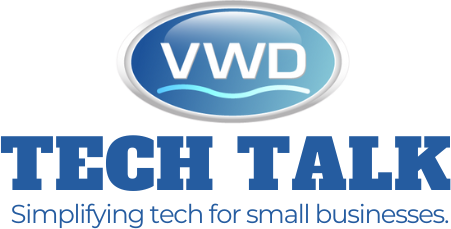CMSs typically require less technical knowledge to use and implement, making them ideal for businesses prioritizing cost-effectiveness and quick website launch. Additionally, CMS platforms often have large communities with extensive documentation and tutorials that provide ongoing support and troubleshooting assistance.
However, when it comes to building a unique web presence and expanding functionalities, custom development is the better option.
Customization
Choosing the right CMS is an essential business decision. It must be based on the unique needs of each business, as well as its budget and immediate and long-term goals.
While pre-built CMS may be cheaper, it cannot provide a personalized solution or guarantee uniqueness or solid security. Similarly, custom systems may be more expensive, but they can help businesses expand their online presence more strongly and fuel business growth.
Custom systems can be built to match complex business requirements, allowing them to scale with growth and improve the workflow for content creators.
They can also be designed to be more secure, as they do not rely on third-party plugins that are more vulnerable to hacking. Furthermore, they can be integrated with internal software and data sources. They also offer full ownership of code and IP.
A pre-built CMS can offer some customization through templates and plugins, but it is still limited in terms of functionality. This is a major drawback for businesses that need to differentiate themselves from competitors or have specific design and functional requirements.
Additionally, pre-built CMS may not be able to support the growing number of devices users use to access websites and applications. A custom CMS can address these issues with a headless architecture, allowing the back-end and front-end to be decoupled.
Extensibility
A CMS may be a good solution for some clients, especially those who want the flexibility to self-edit everything on their website. However, from a technical and quality perspective, this can be expensive.
A more cost-efficient solution is to define which sections of the website must be dynamic and which can remain static. This will help ensure that the CMS is built for the specific needs of the business.
Many off-the-shelf CMS platforms offer plugin systems to add domain-specific functionality to the software. While this is an effective approach, it limits the number of features you can integrate into your CMS platform. It also forces you to build internal functionality rather than relying on existing components.
With a custom CMS, you can build out the framework of the system to include all of the necessary features to support your domain. This can include user experience elements, database structures, and data collection that are unique to your business. This will help you to grow your website without a significant redevelopment effort, saving you time and money.
The key to deciding between a CMS and a pre-built is assessing your current and future business needs, as well as your budget. The right choice will help you to expand your digital presence and fuel your venture growth. Contact us today to learn more about the options available to you!
Security
A CMS solution offers a wide variety of templates, themes and plugins that help users build websites without requiring extensive coding knowledge. However, this flexibility can result in security risks that are beyond the control of the user.
For instance, popular CMS platforms host a large ecosystem of plugins and integrations that connect website functionality to third-party APIs. These solutions may not be vetted or updated regularly, making them attractive targets for hackers.
On the other hand, a custom CMS solution can be designed to offer specific functionalities that align with the needs of an organization.
Custom CMSs are generally used by larger businesses with complex requirements, including those that require a high level of software customization and security. The New York Times, Tesla and Airbnb are examples of organizations that use a customized CMS to manage their websites and content.
Custom-built websites tend to have better security than CMS sites, primarily because web developers take the time to properly secure their work. Additionally, custom-built websites typically use unique code that is less likely to be exploited by hackers than the common security standards used by CMS platforms.
This can mitigate the effects of hacker attacks, data breaches and malware injections that are sometimes used by malicious actors. However, it’s important to understand that both CMS and custom-built websites can suffer from these same types of vulnerabilities.
Time to Market
While building a custom CMS can take longer to implement, it also tends to be more cost-effective in the long run than an off-the-shelf solution. Whether the extra time and expense are worth it depends on the specific business requirements, technical capabilities, and future growth plans of the company.
Off-the-shelf solutions are often built on web frameworks with a generic, domain-agnostic interface for content management. This allows them to be deployed more quickly than a CMS platform, and they also come with plugins and integrations that can further enhance functionality. This can help lower development costs and ensure that your site will work with the latest browsers and platforms.
However, the downside of an off-the-shelf solution is that it can limit functionality in ways that can make it more difficult to integrate new features and meet evolving business needs.
Additionally, many off-the-shelf solutions require an investment in technical expertise to maintain the platform, as well as ongoing support and security patches.
With a custom CMS, the company has more control over the system, which can lead to improved performance and security. A customized CMS can be tailored to specific workflows and user roles, increasing operational efficiency.
This can lead to a better customer experience and allow for easier scalability in the future. It also ensures independence from third-party platforms, reducing risks and increasing security.
Final Words!
Whether you choose a custom-built website or an off-the-shelf solution, Venice Web Design has the knowledge to help you develop a website that meets your specific needs and requirements.
We provide guidance and support throughout the entire development process to ensure that your website is secure, functional, and in line with your business objectives.


